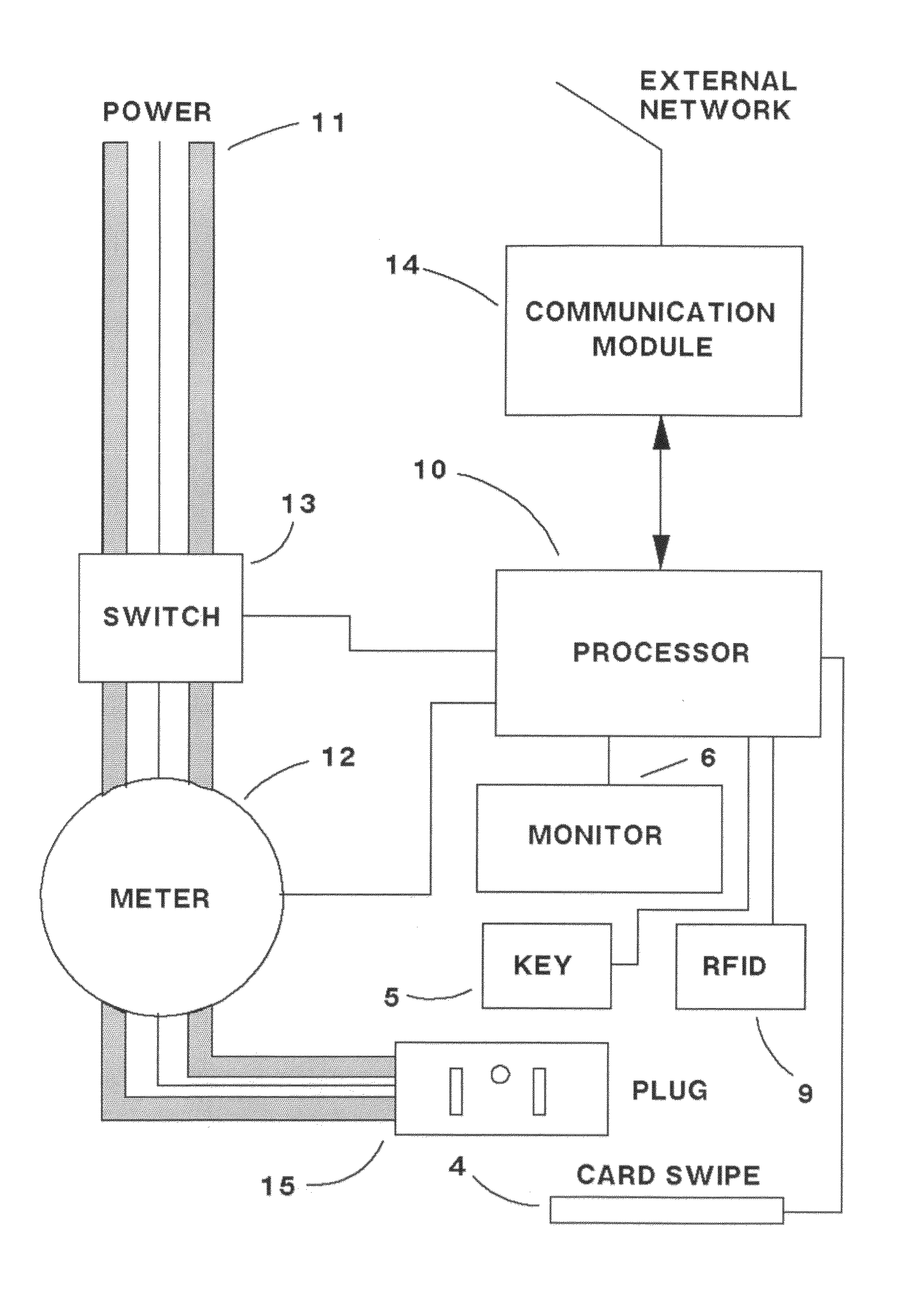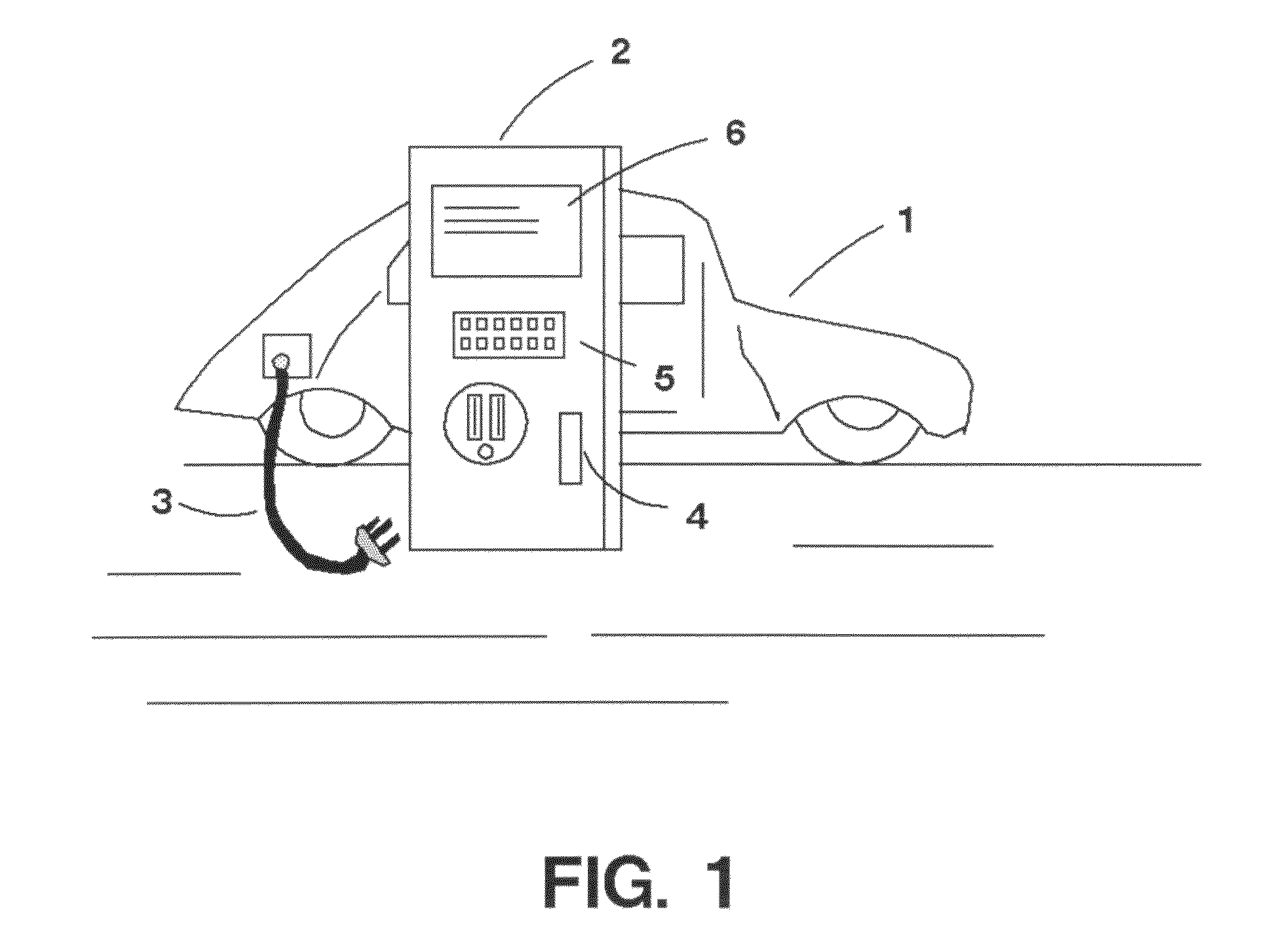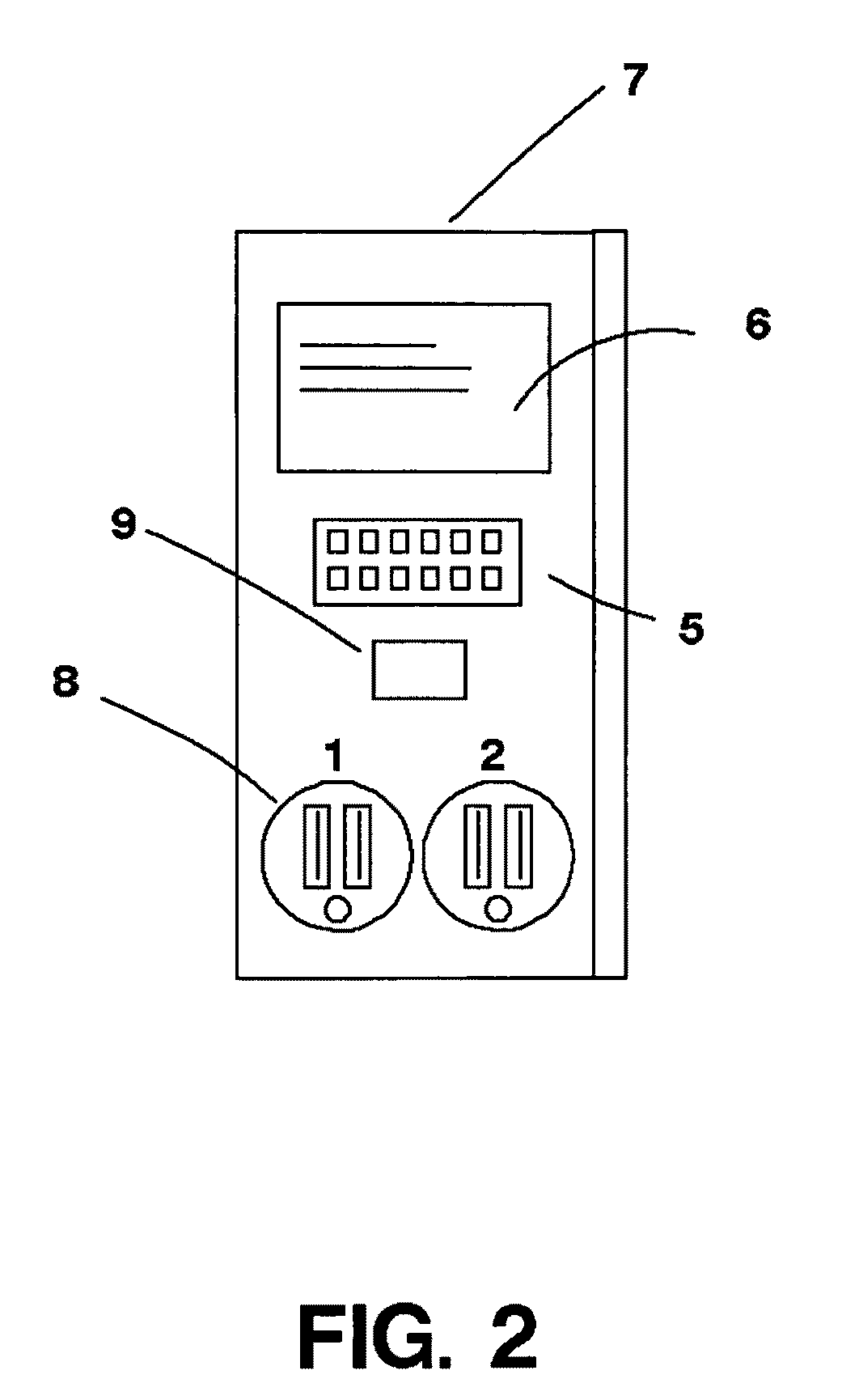Recharge electrical apparatus and method for electric vehicles
a technology of electric vehicles and electrical equipment, applied in the direction of processing input data, instruments, transportation and packaging, etc., can solve the problems of inconvenient use and high cost, and achieve the effect of less demand for electricity
- Summary
- Abstract
- Description
- Claims
- Application Information
AI Technical Summary
Benefits of technology
Problems solved by technology
Method used
Image
Examples
Embodiment Construction
[0014]The present invention relates to a public or private recharging station or service station for recharging the batteries of electric or hybrid electric vehicles. While hybrid vehicles can recharge batteries from an internal combustion engine, and many electric and hybrid vehicles perform partial recharging using energy from braking and the like, still with the wide spread use of electric vehicles, there will be a need and desire to recharge them from the power grid.
[0015]FIG. 1 shows an electric service station arrangement. Vehicles 1 enter the station and stop at an electric dispensing outlet or kiosk 2. This can be a public station or a private station that is only used by particular members or subscribers such as residents of an apartment complex. After stopping, the vehicle's recharge cable 3 can be plugged into a power outlet in the kiosk. This cable 3 can contain a plug and separate electrical safety ground, or an optional safety ground strap can be connected to the vehic...
PUM
 Login to View More
Login to View More Abstract
Description
Claims
Application Information
 Login to View More
Login to View More - R&D
- Intellectual Property
- Life Sciences
- Materials
- Tech Scout
- Unparalleled Data Quality
- Higher Quality Content
- 60% Fewer Hallucinations
Browse by: Latest US Patents, China's latest patents, Technical Efficacy Thesaurus, Application Domain, Technology Topic, Popular Technical Reports.
© 2025 PatSnap. All rights reserved.Legal|Privacy policy|Modern Slavery Act Transparency Statement|Sitemap|About US| Contact US: help@patsnap.com



